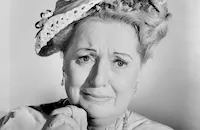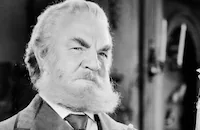Saturday's Children

Brief Synopsis
Cast & Crew
Vincent Sherman
John Garfield
Anne Shirley
Claude Rains
Roscoe Karns
Lee Patrick
Film Details
Technical Specs

Synopsis
On her first day at work, Bobby Halevy meets eccentric inventor Rims Rosson, and the two begin dating. After several months of courtship, Bobby has fallen in love with Rims when he announces that he has been offered a good job turning hemp into silk in the Philippines and is leaving in two days. On the night of Rims's going-away party, Bobby's older sister, Florrie Sands, counsels her sister on how to trap Rims into marriage before he leaves. Florrie coaches Bobby to make Rims jealous by convincing him that she is going to marry someone else, and the trick works as Rims cancels his trip to marry Bobby. The marriage runs smoothly for several months until Bobby loses her job because of the war. The couple's mounting financial difficulties result in marital difficulties. Consequently, when Rims receives a letter from the Philippines, notifying him that the job is still open, Bobby, who has just learned she is pregnant, tears up the letter and conceals it and her pregnancy from Rims. The couple's finances take a turn for the worse when Rims receives a wage cut, forcing the newlyweds to consider moving into the senior Halevys already overcrowded apartment. This last financial blow is too great for Rims, who becomes embittered about losing his one chance at success in the Philippines. Feeling guilty, Bobby tells Rims about the letter offering him the position in Manila, and he lashes out at her with harsh recriminations. Fearful of telling Rims about her pregnancy, Bobby admits that she tricked him into marriage, and furious, he leaves for the Philippines. On the day that he is to sail for Manila, Rims confesses to his father-in-law that he really loves Bobby and would take her with him if he could afford it. Believing that he has failed his daughter, Pops stages a deliberate accident to collect the insurance money and keep the couple together. Although he is unhurt, Pop's sacrifice gives Rims new courage to face the future, and he decides to stay with Bobby. Realizing that Rims really does love her, Bobby finally tells him that she is expecting a baby.

Director

Vincent Sherman
Cast

John Garfield

Anne Shirley

Claude Rains
Roscoe Karns

Lee Patrick
Dennie Moore

George Tobias

Elizabeth Risdon

Berton Churchill

John Ridgely

Margot Stevenson
Claude Wisberg

Jack Mower
Glen Cavender
Gus Glassmire
Frank Faylen

Nell O'day

John Qualen
Tom Dugan
Creighton Hale

Maris Wrixon
Lucille Fairbanks

Paul Panzer
Sam Flint
Crew
Milo Anderson
Henry Blanke
Robert Burks
Elmer Decker
Julius J. Epstein
Philip G. Epstein
John Flinn
Leo F. Forbstein
James Wong Howe
Lee Hugunin
Owen Marks
Irving Rapper
Hugh Reticker
C. A. Riggs
Jack L. Warner
Perc Westmore

Videos
Movie Clip


Trailer
Film Details
Technical Specs

Articles
Saturday's Children -
By Frank Miller

Saturday's Children -
Quotes
Trivia
The play opened in New York City, New York, USA on 26 January 1927 and had 310 performances. In the cast were Humphrey Bogart, Beulah Bondi, Ruth Gordon and Roger Pryor.
Glen Cavender is in studio records as the elevator operator, but the role was played by Jack Wise.
James Stewart was to play "Rims Rosson" but was replaced by John Garfield. Jane Bryant was to play "Boby Halevy", but she retired to get married and was replaced by Olivia de Havilland, who was suspended when she refused the part. Una Merkel had the role of "Florrie Sands" but was replaced by Lee Patrick when she became ill.
Notes
The working title of this picture was Married, Pretty and Poor. According to several news items in Hollywood Reporter, the picture suffered from casting difficulties. James Stewart was originally slated for the lead, but was replaced by John Garfield. Then Jane Bryant, who was to play "Bobby Havley," retired from acting to get married, and the role was reassigned to Olivia de Havilland, who was suspended when she refused to play the part. Marilyn Merrick was next in line to play "Bobby," but the studio felt that she was too inexperienced and so replaced her with Anne Shirley. The last casting change occurred when Lee Patrick replaced Una Merkel in the role of "Florrie Sands" when Merkel became ill. For information about other films based on Maxwell Anderson's play, see entry above for Maybe It's Love.















